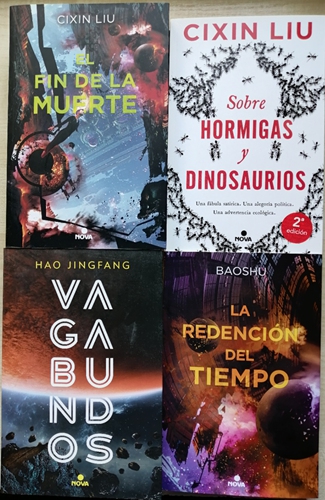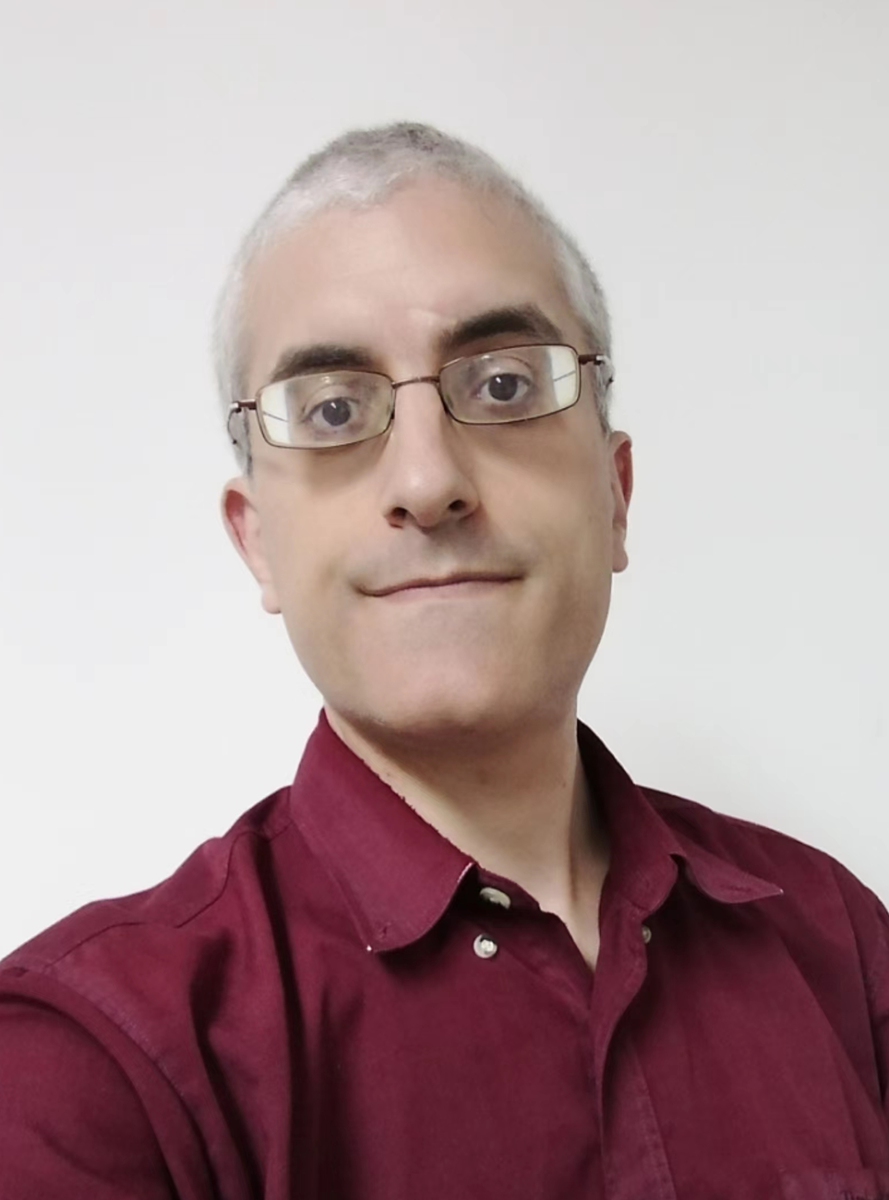
Photo: VCG
As one of the most anticipated, longest-running, and largest sci-fi-themed events globally, the 81st World Science Fiction Convention (WorldCon) will take place in Chengdu, Southwest China's Sichuan Province from October 18 to 22, the first time that the conference will be held in China."I hope the Chengdu WorldCon will be a chance for the rest of the world to know more about Chinese sci-fi, and for China to learn more about sci-fi cultural products that are being made in the rest of the world," sinologist Agustín Alepuz Morales told the Global Times.
Alepuz stated that he looks forward to vibrant discussions at the WorldCon such as addressing the promotion of Chinese sci-fi around the globe. "I also hope that I can contribute to making Chinese sci-fi better known among the Spanish-speaking public, whether through this convention or in any other way," the Spaniard said.
Alepuz also goes by his Chinese name Xia Haiming. With over a decade of experience in publishing and translation including works, such as Death's End, the third novel of Liu Cixin's Hugo Award-winning sci-fi novel The Three-Body Problem, Alepuz has dedicated his life to bridging the gap between China and the West.
His journey to becoming a sinologist began with his fascination for the Chinese language and culture. Over the years, he has worked extensively in the fields of social sciences, economics, and diplomatic affairs.

Chinese sci-fi books translated to Spanish by Agustín Alepuz Morales Photo: Courtesy of Alepuz
'Fascinating experiences'To truly understand China, Alepuz noted that one must immerse oneself in its culture, language, and history. He has been living in Beijing since 2007 since he first arrived as a student at the Renmin University of China. After graduation, he decided to stay, and thenworked in different fields including translation and language teaching.
"So far it's been 16 years of fascinating experiences which have helped me grow both as a professional and as a person," Alepuz noted.
At the sixth International Sinologists Conference on Translating Chinese Literature, which was held in Nanjing, capital of East China's Jiangsu Province in September, Alepuz was given the "Friend of Chinese Literature" award, along with 12 other translators and sinologists to commend their outstanding contributions to bringing Chinese literature to the world.
"I don't think Chinese sci-fi is very different to its Western counterpart. Most stories in this genre focus on the big issues facing humankind - the effects of technological development on individuals and society, the place of human beings in the universe and so on, themes that can easily transcend cultural barriers. This transcendent aspect, which foreign readers can relate to regardless of their cultural backgrounds, is actually what I find most interesting about Chinese sci-fi," said Alepuz.

Agustín Alepuz Morales Photo: Courtesy of Alepuz
Passion for translationHis passion for translation is evident in his works, where he seamlessly blends Chinese nuances into Western contexts, making the content relatable for international audiences.
"I think that translation of Chinese sci-fi should be further promoted, but first and foremost we need good stories. Providing good quality cultural products is probably the best way to make global audiences become interested in Chinese culture," he added.
When asked what attracted him to Chinese science fiction specifically, as opposed to other forms of Chinese literature, Alepuz explained that he spent most of his childhood and teenage years reading sci-fi novels and short stories, and thus he became interested in Chinese sci-fi from an early stage of his study of Chinese language and culture. Also, during his first year as a student in Beijing, he would often see the books of The Three-Body Problem trilogy on bookstore shelves. "Therefore, accessing Chinese sci-fi was a very easy and straightforward thing for me."
"My experience translating the third book of the trilogy was very exciting, even if at times I was at the brink of despair!" he recalled jokingly.
The Three-Body Problem has received international acclaim. As for its reception in the Spanish-speaking world, Alepuz said it has been very positive as well, with several reprints of the books since they first came out. "I often get good feedback when talking to different people about these books, and I'm sure the upcoming Netflix series will only increase its popularity among the Spanish-speaking public."
Alepuz noted that the success of The Three Body Problem can be a catalyst for a cultural exchange between China and the West, at least in the realm of literature. Even though some readers in the West may not have been interested in Chinese culture, but the unexpected success of this trilogy could spur their curiosity and make them more willing to approach other types of Chinese cultural products.
"I hope I can contribute to making Chinese sci-fi better known in Spanish-speaking countries, and Spanish-language sci-fi better known in China in the future," said Alepuz hopefully.



